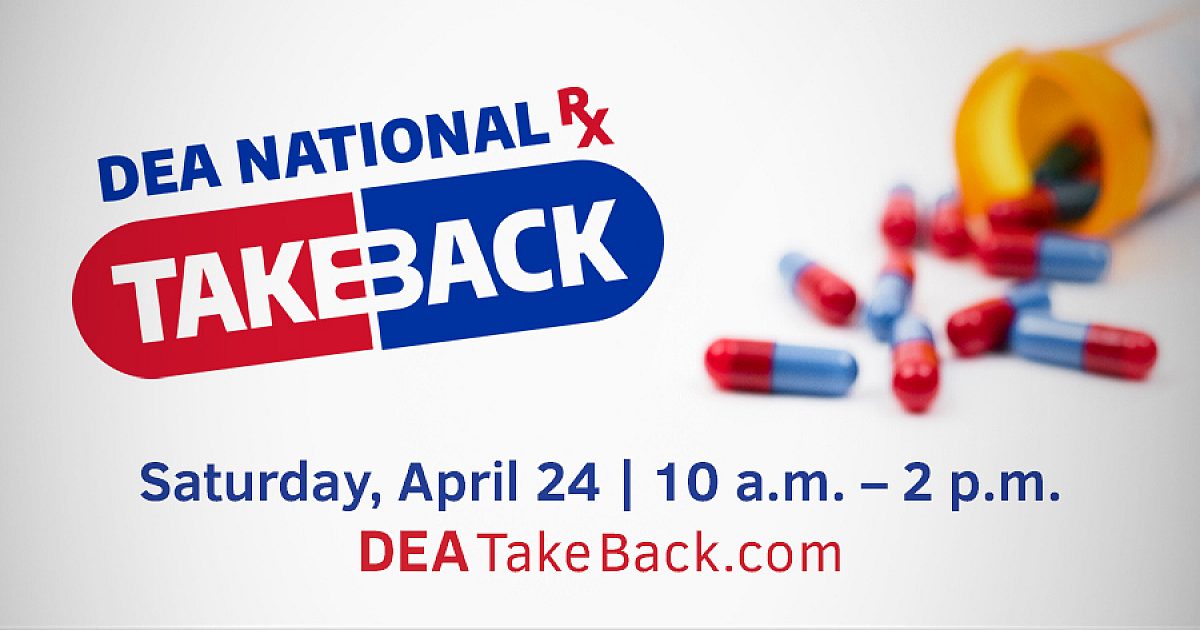Minnesota Farm Bureau is Helping Rural Families Fight Medication Misuse; Here’s How
TOPICS
OpioidsGuest Author
Special Contributor to FB.org

photo credit: DEA
Guest Author
Special Contributor to FB.org
By Ruth Linkenmeyer Meirick
Rural communities have not been immune to the impact of our nation’s opioid crisis. They face specific challenges in combatting drug abuse, from lack of prevention and treatment resources to the stigma surrounding Opioid Use Disorder. A survey sponsored by the American Farm Bureau Federation and National Farmers Union as part of the Farm Town Strong campaign found that 74% of farmers and farm workers say they’ve been directly impacted by the opioid epidemic, yet only one in three rural adults say it would be easy to access treatment.
Providing practical prevention resources and fostering open conversations about the opioid crisis can make a difference in the fight against drug abuse.
National Prescription Drug Take Back Day takes place twice a year and the next one is Saturday, April 24, providing an opportunity to drop off unwanted prescription medications to prevent drug addiction and overdose deaths. But visiting a drop-off site is not always an option for farmers and ranchers.
To overcome these challenges, the Minnesota Farm Bureau is working to raise awareness about opioid misuse, create opportunities for individuals to engage in honest conversations about drug abuse and increase access to convenient drug disposal with at-home resources like the Deterra System.
Expanding access to prevention and disposal resources
The 60 million Americans living in rural areas have an 87% higher chance of receiving an opioid prescription compared to those living in cities. The inconvenience of returning to the doctor for a refill or driving to a distant take-back site may prompt rural families to save their unused and expired prescriptions in case they need them later. This is why it’s critical to share information on the importance of proper drug disposal and provide a solution like Deterra that offers immediate at-home drug deactivation and helps protect the water and soil that rural communities depend on.
At Minnesota Farm Bureau, we’ve worked to increase awareness about the opioid epidemic and bring attention to prevention resources available to our rural communities in several ways:
- Creating resources. We created a resource card that is adhered to a Deterra Pouch and distributed to the 78 county Farm Bureaus across Minnesota with helpful tips, links to online materials and ideas to help foster conversations and community awareness about opioids.
- Offering drug disposal kits. With support from the Rx Abuse Leadership Initiative, we’ve distributed nearly 25,000 Deterra Pouches. The pouches are available to county leaders so they can provide residents with discreet, at-home disposal and help educate individuals about the importance of disposal in preventing opioid misuse. Rural residents can use the pouches to safely deactivate and dispose of unused medications prescribed by their doctor and/or their animals’ veterinarian.
- Seeking out partnerships. Partnering with organizations like local law enforcement, hospice providers, pharmacies and community groups to educate families and provide prevention tools helps further our efforts and impact as many people as possible.
You can read more about our Deterra distribution efforts in this case study.
During the month of April, national nonprofit SAFE Project and Athletico Physical Therapy have teamed up with Deterra to offer free drug disposal pouches to households nationwide through the Gone for Good at-home medication disposal campaign. Through April 30, anyone can go online and request a free Deterra Pouch at DeterraSystem.com/SAFE.
Whether its in-person or online, we know that providing practical prevention resources and fostering open conversations about the opioid crisis can make a difference in the fight against drug abuse. Overcoming the epidemic in farm country requires creative strategies that meet the needs of the rural community.
We encourage all Farm Bureau and other agricultural leaders across the country to consider these strategies for increasing access to convenient drug disposal, creating opportunities to share insights, and continuing to learn from each other to keep our communities safe, connected and drug free.
Ruth Linkenmeyer Meirick is director of the Minnesota Farm Bureau Foundation, a 501(c)3 nonprofit that provides opportunities for supporters of agriculture to invest in people and programs focused on supporting active farmers and agriculturalists, better connecting agriculture to consumers and serving rural communities.
Trending Topics
VIEW ALL